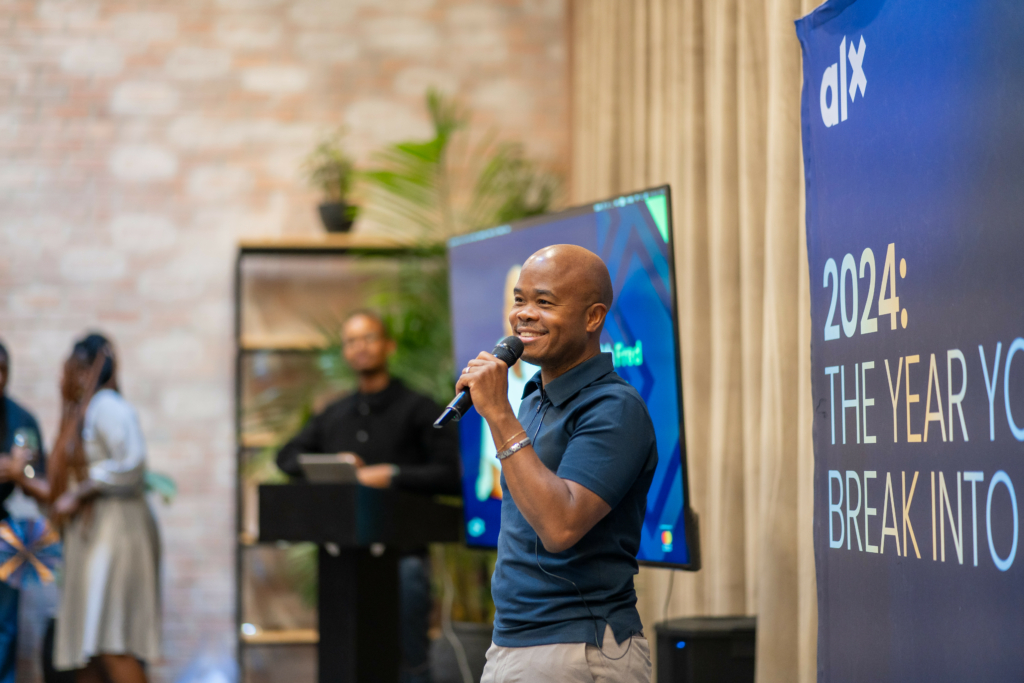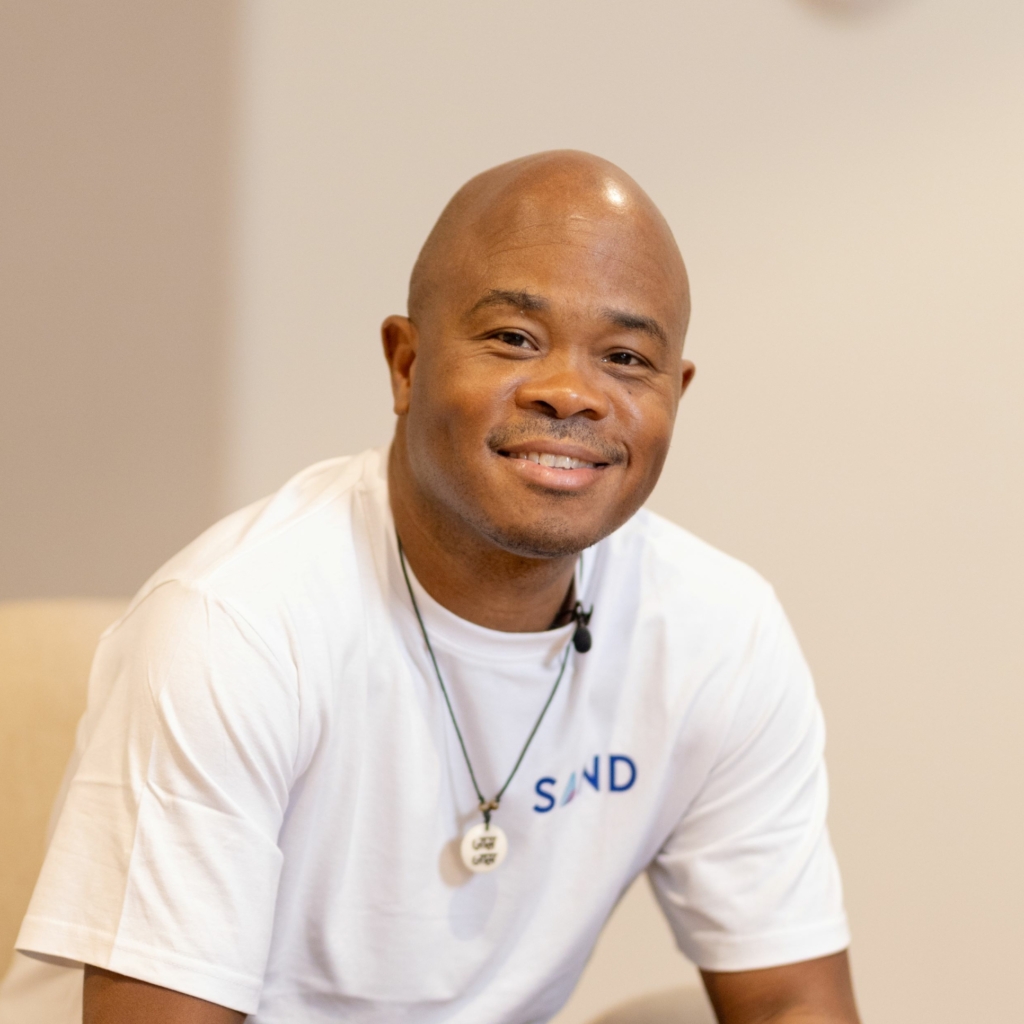What triggered your interest in education innovation?
My parents always stressed the importance of education to my siblings and me from a young age. This belief, along with my experience of being a headmaster at 18 at a school my mother started in Botswana, ignited my passion for education. That experience was a pivotal moment for me and showed me just how transformative education can be for young people.
What inspired you to found the African Leadership Group, which includes the change-making organizations of African Leadership Academy, African Leadership University, and ALX? What challenges were you trying to solve?
I was inspired to start the African Leadership Group to address the critical leadership gap on the continent. Despite Africa’s rich resources and vibrant populations, leadership deficiencies have held back development and progress. Each organization within the African Leadership Group is designed to tackle different aspects of this overarching challenge. The first organization–African Leadership Academy, focuses on nurturing young leaders during their late teenage years. The second entity–African Leadership University, aims to educate future African leaders between ages 18-24 , and the third–ALX, is where we infuse leadership training with technology training. ALX is the largest scale of these three entities, and currently trains about 250,000 young people in over 30 physical hubs across Africa. Together, these three educational institutions work to create a powerful network of ethical, entrepreneurial leaders who can drive sustainable development across Africa.
What were your career steps before starting the African Leadership Group? What did you learn and how did they set you up for success?
Before starting the African Leadership Group, my career journey took me through various industries–management consulting, biotechnology, and other entrepreneurship ventures. These different roles and ventures taught me the importance of vision, resilience, and the ability to adapt and innovate. They reinforced my commitment to creating impactful, scalable solutions for Africa’s challenges. Each step of my journey has helped build the skills and perspectives necessary to launch and grow the African Leadership Group and now Sand Technologies successfully.

What were your most memorable experiences at Stanford? How did attending Stanford confirm your drive to launch the African Leadership Academy?
Stanford was a transformative experience for me. I was constantly surrounded by visionary thinkers and innovators. The exposure to cutting-edge ideas and the emphasis on impact deeply influenced my aspirations. Attending Stanford was a key driver in me launching the African Leadership Academy. In fact, I wrote the business plan with my classmates while at Stanford’s GSB. I also met Chris Bradford, who was a year behind me at the GSB and became my co-founder.
It is safe to say that the Stanford community has been instrumental to our success. Some of our greatest supporters and donors have come through Stanford’s GSB network, including many of my professors at business school, like the legendary Irv Grousbeck, John Morgridge, and Jim Ellis. The relationships and opportunities that have been opened to us through the Stanford network have been incredible and often life-saving!
You’re a serial entrepreneur and thought leader. What surprised you the most about the initial founder’s journey? And now looking back, how did you learn from your previous founding experiences for each new venture?
The founder’s journey is full of surprises. I’ve been particularly surprised by how much resilience and perseverance is needed to turn a vision into reality. It is crucial to adapt and learn from “failures” to succeed. In my mind, there’s no such thing as “failure”. Shame is usually associated with that word and I prefer to frame “failures” as learning opportunities that either went according to plan or not.
With each new venture, I became better at anticipating challenges, managing resources, and staying focused on the mission. These experiences have taught me the importance of building a strong network, fostering a collaborative culture, and continuously innovating.

How do you see the future of education evolving?
I see the future of education evolving into a more personalized, hands-on, and lifelong learning journey. Technology will play a major role in making education more accessible and tailored to individual and societal needs. We’ll shift from traditional learning methods to those that emphasize critical thinking, creativity, and practical skills. Education will be closely linked to the global economy, focusing on skills that are relevant in our fast-changing world.
Collaborative and interdisciplinary learning will also become more common, preparing students to tackle real-world problems. Additionally, there will be a stronger focus on lifelong learning, with education systems offering continuous opportunities for upskilling and reskilling to keep pace with technological advancements and changing job markets.
Institutions will need to be flexible and responsive to the evolving needs of students to ensure that education remains relevant and impactful.
What advice would you give to Stanford students interested in catalyzing education innovation?
Start by really understanding the problems you want to solve and be clear on your “why?”. Spend time with employers, in society, students, and communities to get a clear sense of their real needs and challenges. Ensure you are embedded in the ‘real world’ and not only in the classroom. Form partnerships with industry, government, entrepreneurs, and innovators from other fields. Real-world experience and diversity of thought is key to creating truly disruptive solutions.
Take full advantage of the amazing resources and network at Stanford. Collaborate with peers from various disciplines, seek mentorship from faculty, and explore entrepreneurial programs and funding opportunities.
Be ready for a journey of continuous learning and iteration. Education is a complex and ever-evolving field, so staying adaptable and open to feedback is crucial. Embrace “failures” as learning opportunities and use them to refine your ideas.
Lastly, stay committed to your vision and the impact you hope to achieve. Innovating in education can be tough, but it’s incredibly rewarding. Your efforts have the power to transform lives and communities, so keep pushing forward and stay focused on your mission.
